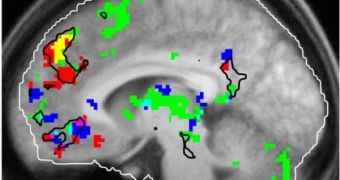The new research has been prompted by a very old question, and namely what is it that makes us remember certain moments of our past when we listen to the music we heard at that time? From a medical perspective, understanding precisely what makes this happen is crucial, and now a researcher from the University of California in Davis (UCD) thinks he has the answer – the brain area that houses old memories also acts like a hub that links the centers for music and emotions. So, when we hear that old tune, we remember both the circumstances strongly associated with it and the feelings we had at the time.
“What seems to happen is that a piece of familiar music serves as a soundtrack for a mental movie that starts playing in our head. It calls back memories of a particular person or place, and you might all of a sudden see that person's face in your mind's eye. Now we can see the association between those two things – the music and the memories,” UCD Center for Mind and Brain associate professor of psychology Petr Janata, the leader of the new study published online in the February 24th issue of the journal Cerebral Cortex, explains.
The scientist used functional Magnetic Resonance Imaging, or fMRI, to record the reactions triggered in the brain of 13 volunteers by a playlist of 30 tunes, selected to represent important moments in the lives of the participants. After hearing each of them, the students filled a questionnaire detailing their state of mind, if they found the tracks familiar, and what feelings the music evoked in them.
On average, Janata learned, 13 of 30 tracks were associated with an autobiographical memory, meaning that they evoked the most powerful responses, both in terms of memory clarity and feelings involved. By looking at the fMRi charts associated with those tunes, the researcher found out that the upper (dorsal) part of the medial pre-frontal cortex in the human brain is directly responsible with facilitating the connections between the music, memory and feeling centers.
“What's cool about this is that one of the main parts of the brain that's tracking the music is the same part of the brain that's responding overall to how autobiographically salient the music is,” he says, while adding that the discovery could also have useful potential applications. “Providing patients with MP3 players and customized playlists could prove to be a quality-of-life improvement strategy that would be both effective and economical,” he concludes.

 14 DAY TRIAL //
14 DAY TRIAL //